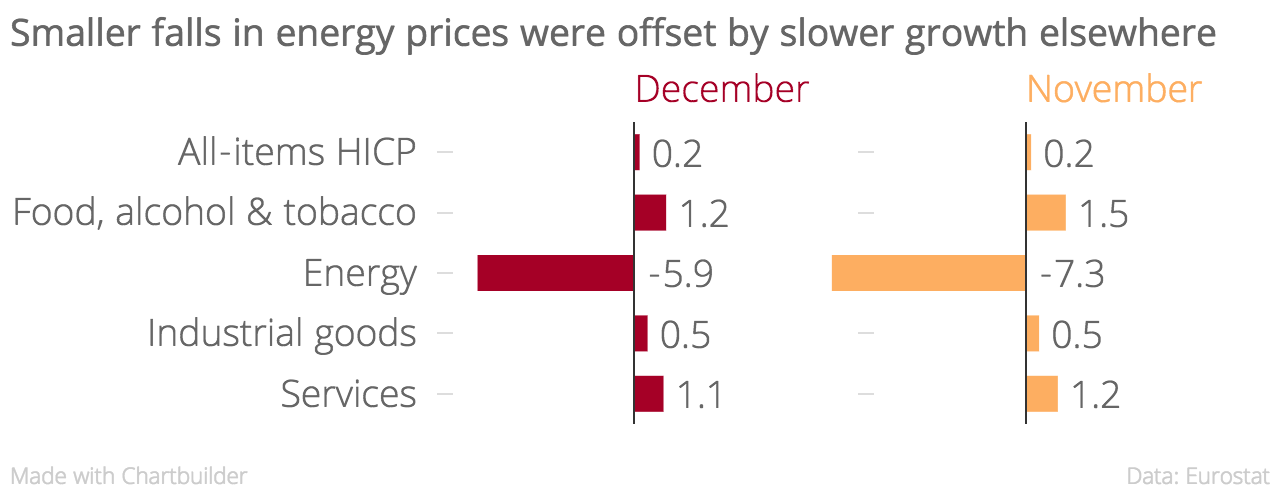Eurozone inflation stays at 0.2 per cent in December

Inflation in the Eurozone was 0.2 per cent in December, unchanged from the month before, according to official estimates released this morning.
The rate of energy price declines slowed to 5.9 per cent from 7.3 per cent, the figures published by Eurostat, the statistical office of the European Union, reveal. However, this was offset by slower growth in food, alcohol and tobacco prices, which were 1.2 per cent higher in December compared with the same month last year. It marked a slowdown from November's growth rate of 1.5 per cent.
Inflation, measured by the year-on-year change in the harmonised index of consumer prices, has been below the European Central Bank's (ECB) target of just below two per cent since early 2013. It fell sharply into negative territory early last year as collapsing oil prices and cheap commodities weighed on prices and has hovered around zero since.
The European Central Bank extended its €60bn (£44bn) a month asset purchase programme at the end of last year by another six months. The programme, launched in March 2015, is now planned to continue until March 2017 by which time the ECB plans to have completed nearly €1.5 trillion of purchases of mostly public debt.
"The soft inflation print increases the pressure on the ECB next week, and also increases the risk of additional easing. But we think the central bank will refrain from adding stimulus, opting to wait for a bit more data in Q1 [January to March] before potentially acting. Another disappointment in the January inflation data likely would see the central bank adding to its stimulus," said economist Claus Vistesen from Pantheon Macroeconomics.
